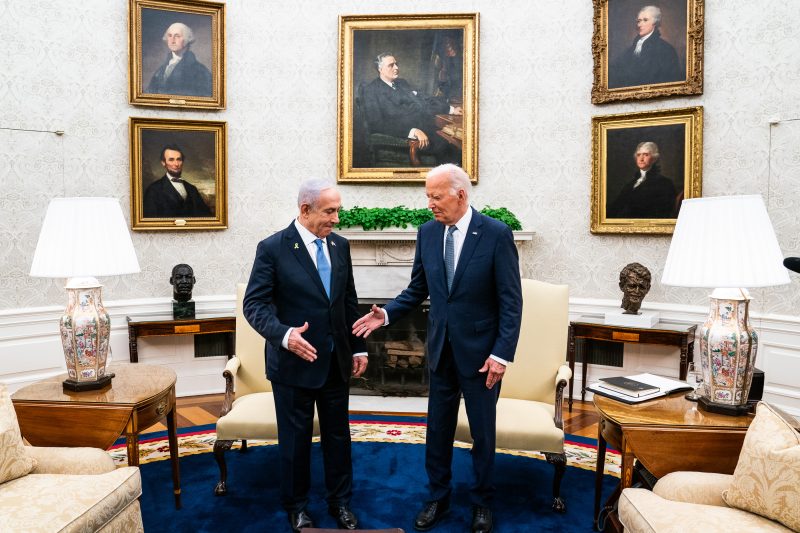Israeli Prime Minister Benjamin Netanyahu’s recent visit to the United States has left critics questioning the lack of a clear and workable plan for peace in the region. The visit, which involved meetings with President Joe Biden and other top officials, was intended to discuss important issues such as the Israeli-Palestinian conflict, Iran’s nuclear program, and bilateral relations between the two countries. However, many believe that Netanyahu failed to offer any concrete solutions or strategies to address the longstanding conflicts in the Middle East.
One of the key points of contention surrounding Netanyahu’s visit was the Israeli government’s approach to the Israeli-Palestinian conflict. Critics argue that Netanyahu’s administration has been reluctant to engage in meaningful peace talks with the Palestinians and has instead focused on expanding Israeli settlements in the occupied territories. This approach has been widely criticized by the international community and has been cited as a major obstacle to achieving a lasting peace agreement in the region.
Despite calls from the Biden administration and other world leaders to halt settlement expansion and return to the negotiating table, Netanyahu has continued to pursue policies that are seen as detrimental to the prospects of peace. The lack of progress on this front has fueled skepticism about the Israeli government’s commitment to finding a peaceful resolution to the conflict and has raised concerns about the future of the region.
In addition to the Israeli-Palestinian conflict, Netanyahu’s visit also touched on the issue of Iran’s nuclear program. Israel has long been a vocal critic of Iran’s nuclear ambitions and has urged the international community to take a more aggressive stance against the Islamic Republic. However, critics argue that Netanyahu’s hardline approach to Iran has not yielded the desired results and has instead escalated tensions in the region.
Furthermore, Netanyahu’s visit highlighted the strained relationship between the United States and Israel under the Biden administration. While the two countries have historically been close allies, recent disagreements over issues such as the Iran nuclear deal and the Israeli-Palestinian conflict have strained their relationship. Netanyahu’s failure to present a viable plan for peace during his visit has only added to the growing rift between the two allies.
Overall, Netanyahu’s visit to the United States has underscored the challenges facing efforts to achieve peace in the Middle East. Critics argue that without a clear and workable plan for resolving the Israeli-Palestinian conflict and addressing other key issues in the region, the prospects for peace will remain elusive. As tensions continue to simmer, the need for constructive dialogue and meaningful action becomes more urgent than ever.

